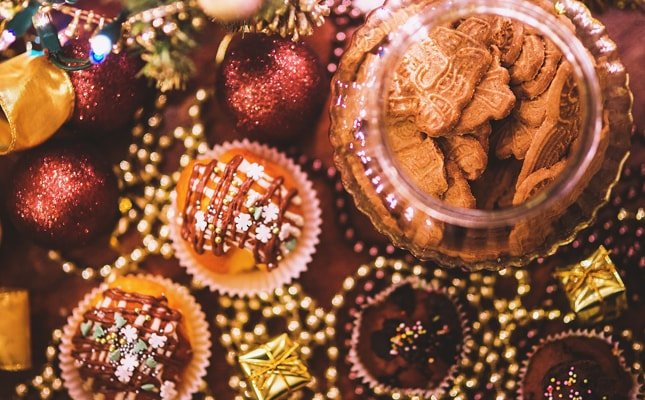Holidays and special occasions can lead to overindulgence. But are your cravings seasonal or do they signal a food addiction?
Many of us overindulge in food, drink and desserts during the holiday season, often in larger quantities than the rest of the year. And in Singapore there is no lack of celebrations. But after all it is simply part of the Christmas spirit, right?
Temptation and traditions leave us feeling stuffed at Chinese New Year, on a sugar high on Christmas morning and giving in to one more drink during New Year’s celebrations. While the holiday season is generally enjoyable, to those who suffer from addictions it can be a trying time with temptation everywhere. Many people who suffer from a food addiction find the holiday season especially stressful, partly due to the abundance of sweet temptations displayed all over the shops and even in offices, but also partly because this is the season where your addiction becomes more noticeable and sometimes uncontrollable.
If you cannot resist stealing one more chocolate, dream for days about the Christmas lunch at Raffles Hotel or find yourself overindulging until you feel sick, then chances are you might be suffering from a food addiction.
What is Food Addiction?
A food addiction is similar to a gambling or drug addiction, except it is usually harder to diagnose because food is always present in our lives. Food addiction is classed as a process addiction and can be identified by the relationship we have with food, the types of food we repeatedly eat and the reasons behind why we eat them.
Junk and sugary foods are the most common types of food involved in an addiction; and cravings, binging or an inability to control how much of these foods you eat are characteristic behaviours.
For example, do you spend a significant part of your day thinking about food or do you go out of your way on the way home to buy junk food? These are common behaviours for people suffering from food addictions, but can be ignored for years or simply labelled as actions of someone with a ‘sweet tooth’. However, if you switched the junk food for alcohol or drugs, it would immediately be apparent that someone was an addict.
Scientific American magazine links obesity with addiction, because overeating stimulates the same brain circuits as drug use. The article cites studies that show “foods rich in fat and sugar can supercharge the brain’s reward system, which can over power the brain’ s ability to tel l an individual to stop eating.”
When the reward system is being activated our body releases pleasure neurotransmitters like dopamine. Some of us get addicted to this good feeling and increasingly seek out certain foods that give us these good vibes, with negative feelings of guilt or deprivation accompanying the cravings. Often it is only when the addiction affects our health or weight do we address the problems associated with food, but even people at a healthy weight can suffer from a food addiction.
Am I Addicted to Food?
Because food is essential to our daily lives it can be harder to recognise a food addiction compared to a gambling or alcohol one. But if you suspect you might have a problem then the following questions can help you figure out if you are addicted:
Do you often end up eating more than you planned (especially junk food)? Do you eat even when you are not hungry?
Do you often feel like you’ve eaten too much, or feel sick or stuffed? Do you ever hide or lie about what you eat?
Do your eating habits interfere with work, social situations or relationships?
Do you tackle negative emotions like sadness by overindulging in certain foods?
If you answered yes to any of these questions then you might be suffering from a food addiction. The Cabin’s food addiction quiz offers more questions and can help further diagnose you as to whether you have a problem.
What can I Do about It?
Singapore’s Health Promotion Board has been active in the last few years trying to combat obesity by promoting healthy eating and exercise after research revealed one in nine Singaporeans were obese, but this does little to tackle the real reasons behind food addiction. Food addiction is an eating behavioural disorder whereby one becomes addicted to the feelings associated with certain foods. Recognising you have a problem is the first step toward recovery. Taking to time to read up about food addictions and how to deal with them is also useful in reducing the problem.
Surviving the Holiday Season
The holiday season often brings more stress at work and in relationships, so food addicts may turn to comforting food more during this time. There are also more occasions that test our willpower and invite us to overindulge in our favourite foods, and this can lead to feelings of guilt, irritability and negative self worth. If you think you may be suffering from a food addiction then here are some tips on surviving the holiday season:
Recognise your feelings
Try to recognise what feelings make you reach for food. Is stress, boredom or loneliness making you reach for a comfort food, or are you eating because you are distracted or uncomfortable in a social situation? Recognising the ‘triggers’ that make you seek comfort in food is the first step to overcoming a food addiction.
Eat healthy
It is hard to over indulge on carrots or salad so try to eat as healthily as possible. Plan your meals ahead of time and make sure you have healthy snacks at home. Remove temptations from your home and take fruit to snack on at work.
Do not be too hard on yourself
Almost everyone overindulges during the holiday season, be it on food, drink or shopping, but try not to be too hard on yourself. Set up a system where if you binge you work it off the next day by going for a run (or even better, run before if you feel a binge coming on).
Seek help
There is no shame in asking for help, and often it is the fastest way to address the problem. Because food is an essential part of our lives it can sometimes be the hardest addiction to control. Seeking advice from a professional can help untangle the emotions and motivations behind your impulses and can help you redefine your relationship with food.
Happy holidays!




